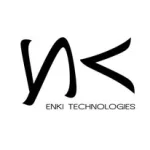Mending the Digital Divide
The Internet has become essential for addressing our everyday needs. From finding a job to ordering groceries, we use the Internet for everything, making life harder to operate when one does not have access to it. Most smartphones are programmed to connect to the Internet automatically. Still, personal WIFI networks can cost individuals hundreds of dollars a month, making them hard to access for those living paycheck to paycheck. For impoverished communities, access to an affordable internet connection can mean the difference between life and death. In 2012, Hurricane Sandy, one of the worst storms in American history, devastated the East Coast of the United States, causing billions of dollars of damage. However, for residents of the Red Hook area of Brooklyn, NY, their open WIFI network potentially saved them from total disaster. The Red Hook WIFI is a mesh network that allows all residents of the public housing community to access the Internet for free. Thanks to this network, residents could connect with volunteers and first responders when the storm took out the neighborhood’s power. With access to the web, they could get updates on safe routes and places to obtain emergency supplies and first aid. Red Hook WIFI is one of many public mesh WIFI networks set up by volunteer groups around the country to give low-income residents access to an affordable, reliable Internet connection. Organizations such as the Open Technology Institute have created programs that provide teens in low-income areas access to tech training and educational programs. The teens gain the knowledge and skills needed to build these mesh WIFI networks in their neighborhoods, endowing them with invaluable experiences that they can utilize in the jobs market and school.

Jobs That Work for Everyone
It is a common belief that many low-skill jobs will disappear soon because automation will make them obsolete. To some extent, this is true. Many factories opt for robotic labor over human workers, leaving many communities with very little work if they do not have a particular skill set. But machines can’t do everything. The jobs market is still reliant on human labor. Some non-profits have jumped into action to provide work opportunities for low-income communities with few technical skills in the digital economy. Lailah Janah, a tech entrepreneur, founded Samasource, a non-profit that connects impoverished communities with work in the digital sector. According to Janah, tasks such as image tagging and data entry are two of many that exist in the digital industry that does not require individuals to have technical skills. These are jobs that can be filled fast by people anywhere in the world without much training, and the money can be used to supplement their income and provide them with employment. For communities in Sub-Saharan Africa and Asia who rely on agriculture as their primary source of income. The money can be reinvested in their farms and other businesses.
This work is also accessible for those where travel and mobility may be an issue, such as for communities who do not have access to affordable transportation or those with physical disabilities. Samasource has also designed an educational program to accompany their jobs program to help those in the program learn how to find work using the Internet. As a result, program participants saw their yearly incomes quadruple. They could redistribute the extra income into other areas of their lives, such as their education, family, or businesses. Even as the number of individuals in extreme poverty declines, billions of people worldwide live in economically unstable situations. As we become an increasingly digital society, it is crucial to consider using new technology to combat these issues. Many visionaries create long-term solutions that consider the unique circumstances that individuals find themselves in and build from there. Building stable economies start with providing communities with steady, sustainable work, and as our economy evolves, this requires us to think of solutions that are outside of the box.



